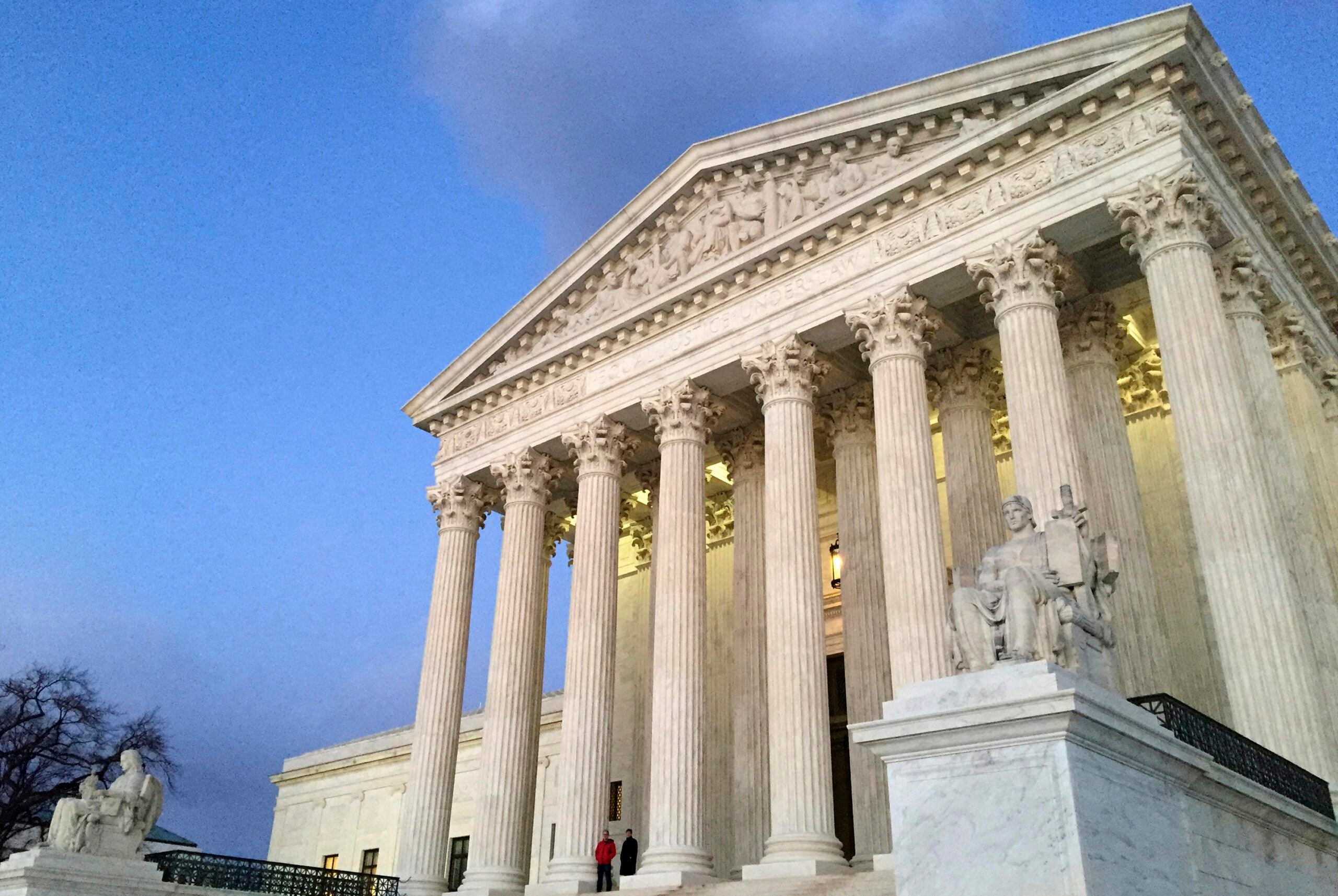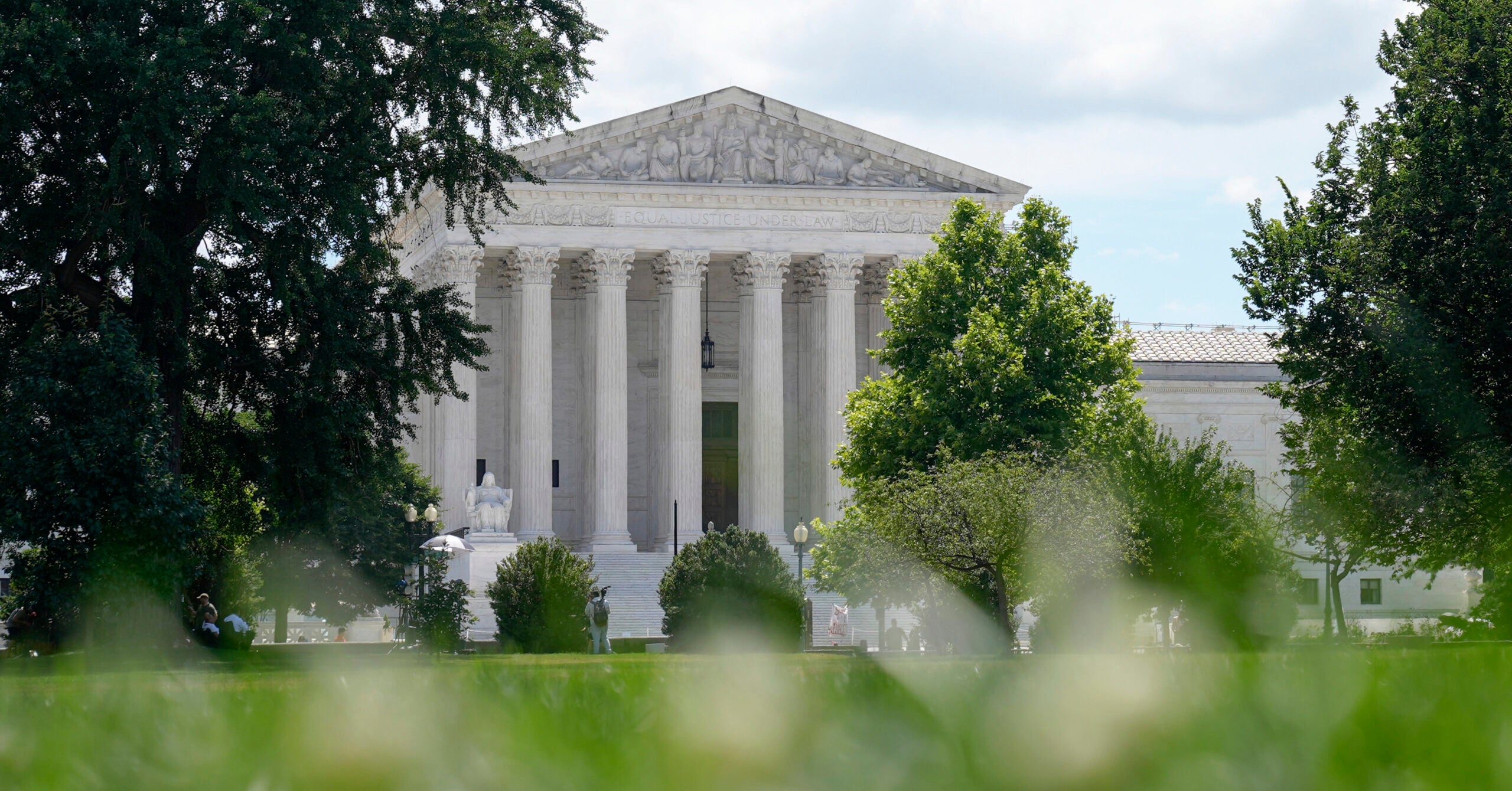The U.S. Supreme Court seemed likely to rule in favor of the charitable arm for the Catholic Diocese of Superior, which is arguing it was wrongly denied a religious exemption from paying state unemployment tax.
Justices heard arguments in the case Monday. Both liberal and conservative justices seemed to suggest that Wisconsin was discriminating against certain religious groups by only giving exemptions to groups that instill their faith through worship, religious teachings or proselytization.
The Catholic Charities Bureau and four subsidiaries have argued they qualify for such an exemption, challenging a state decision to the contrary. The group and its related organizations provide services to individuals with developmental or mental health disabilities.
Catholic Charities appealed the case to the U.S. Supreme Court after the Wisconsin Supreme Court’s liberal majority ruled 4-3 in favor of the state’s workforce agency and labor review commission. The majority decision stated that while the groups’ mission is to carry out Catholic teachings, their activities are “primarily charitable and secular.”
Attorneys for the Catholic Charities Bureau said the state court’s ruling was unconstitutional and violated religious freedoms under the First Amendment. On Monday, liberal and conservative justices on the federal high court seemed to agree.
“I thought it was pretty fundamental that we don’t treat some religions better than other religions, and we certainly don’t do it based on the content of the religious doctrine that those religions preach,” Justice Elena Kagan told Wisconsin Assistant Attorney General Colin Roth.
“Isn’t it a fundamental premise of our First Amendment, the state shouldn’t be picking and choosing between religions,” Justice Neil Gorsuch added.
Wisconsin law requires employers to pay an unemployment tax that’s used to compensate workers when they’re out of work, allowing time for them to find another job. Nonprofit organizations “operated primarily for religious purposes” are exempt from paying the tax.
Wisconsin’s Roth argued that the state doesn’t discriminate among denominations, but it judged groups that qualified for exemptions based on whether their activities were primarily religious rather than their motivations for providing those services. He said a ruling in favor of Catholic Charities could “radically expand” similar exemptions.
“It would leave potentially over 1 million employees nationwide without unemployment coverage, like nurses and janitors at religiously affiliated hospitals, even though the state could virtually always determine their benefit eligibility without confronting religious doctrine,” Roth said.
A lawyer for the Trump administration spoke in favor of Catholic Charities, saying courts shouldn’t be in the business of “defining what is inherently religious.”
Eric Rassbach, a lawyer for Catholic Charities, argued that Wisconsin is attempting to draw distinctions along theological lines. He said no court would find clergy preaching on Saturday are not ministers because they typically preach on Sundays.
“Nor would any court hold that a religious leader who helps the poor isn’t a minister because secular leaders help the poor, too,” Rassbach said. “By that measure, Mother Teresa might not qualify.”
Catholic Charities has been paying the unemployment tax since 1972.
Lawyers for the nonprofit charitable group previously said they felt they could receive an exemption now, noting case law has shifted on free exercise of religious rights. In 2022, the U.S. Supreme Court overturned the Lemon v. Kurtzman case, which is known as the Lemon test. The case, which had been in place for more than 50 years, had been used to measure compliance with the First Amendment.
News with a little more humanity
WPR’s “Wisconsin Today” newsletter keeps you connected to the state you love without feeling overwhelmed. No paywall. No agenda. No corporate filter.
Catholic Charities and its entities operate more than 60 programs that assist people who are aging, living with disabilities, living in poverty or in need of disaster relief.
In 2015, a Douglas County judge exempted one of the group’s subsidiaries that helps people living with developmental disabilities from having to pay into the state plan. Catholic Charities argued it, along with other subsidiaries, should also receive an exemption, and a judge agreed in 2020.
Two years later, a state appeals court overturned the ruling and sided with the Wisconsin Department of Workforce Development and the state’s Labor and Industry Review Commission. While the diocese operates the Catholic Charities Bureau, the commission argued the organization’s activities or services weren’t expressly religious in nature.
The Wisconsin Supreme Court upheld that ruling and said neither the organization nor its subsidiaries attempted to “imbue program participants with the Catholic faith” or provide any religious materials to employees and participants.
Wisconsin Public Radio, © Copyright 2025, Board of Regents of the University of Wisconsin System and Wisconsin Educational Communications Board.




